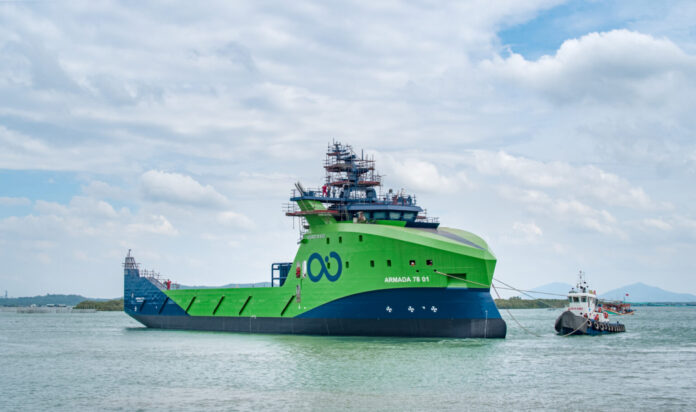In a transformative move for maritime transport, robotic ships are setting sail in oceans across the globe. One such vessel is being tested in a Norwegian fjord by Ocean Infinity, a company that has fitted the ship with a suite of high-tech equipment, including cameras, radars, and various communication devices, making it virtually autonomous. These remote-controlled vessels, like Ocean Infinity’s 78m “Armada”, require significantly fewer crew members on board, which could revolutionize maritime transport by enhancing efficiency, reducing carbon footprint, and ensuring safety.
The Wet Revolution: Autonomous Robotic Ships Set to Transform Modern Transportation
The vision of fully autonomous ocean-going ships is quickly becoming a reality, and a large lime-green vessel navigating a Norwegian fjord is leading the charge. This vessel, part of Ocean Infinity’s “Armada”, is equipped with state-of-the-art technology that allows it to be remotely controlled and potentially operate with no one on board. This shift could dramatically reduce the number of crew needed for operations, slashing traditional crew requirements by more than half.
The implications of such a technological leap are vast. Not only could it lead to safer, more efficient, and more sustainable transport over water, but it could also redefine the maritime industry’s employment landscape. Shipping professionals may transition to roles in remote operation centers, like the one in Southampton that Ocean Infinity operates, where multiple “bridge stations” feature advanced gaming-like controls and offer a 360-degree view via live streams from the ship’s numerous sensors.
These developments aren’t limited to Ocean Infinity. Across the globe, other projects are also pushing the boundaries of maritime autonomy. Norway boasts an electric container ship, Belgium and Japan are experimenting with autonomous ferries, and China is testing autonomous container ships for coastal city routes.
Why It Matters
The rise of robotic ships is a game-changer for the maritime industry, offering the promise of enhanced operational efficiency and a new approach to global shipping. They represent not just a technological achievement but a fundamental shift in the maritime workforce and the concept of seafaring.
Potential Implications
A successful transition to robotic ships could spark a new era in global trade, reduce environmental impacts, and perhaps most importantly, improve safety at sea. However, it also raises pressing questions about the future of maritime employment, cybersecurity, and the robustness of autonomous navigation systems.
Source: BBC


